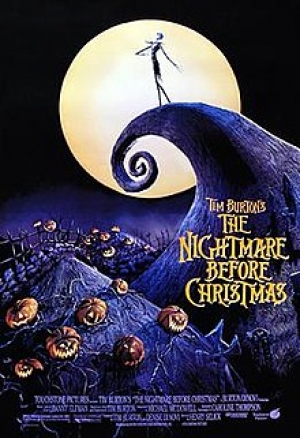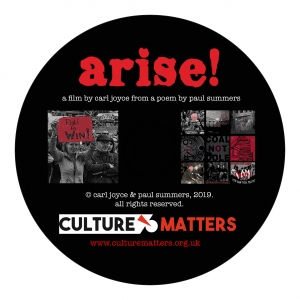
The Nightmare Before Christmas
Jack Brindelli offers some lessons for the radical left from an animated skeleton
This December is particularly troubling for an unrepentant leftist like me. On top of the usual festival of gluttony and materialism that caps every year, I find myself living a very real nightmare before Christmas. Like many others, I am reeling from a catastrophic electoral defeat, and a government being returned to power seemingly bent on destroying any remaining sanctuary for the poor, the sick and the vulnerable.
However, it is as I pine for the leadership of Jeremy Corbyn in this festive period that I am reminded of an analysis I wrote five years ago for my local People’s Assembly branch. It strikes me as having become even more relevant now, even if it was only semi-serious when I penned it.
So, assuming you are similarly wallowing in a pit of despair this Christmas, and in the hope of raising your spirits, I impel you to think upon a potential hidden meaning to Tim Burton’s The Nightmare Before Christmas.
The interesting thing about horror is that a good scare can unmask the ideology hiding in any situation; it can show us the gruesome reality behind the things we always thought comforting, and reveal the terror within the things that we once presumed to be normal. That’s why the macabre is such an ever-present in Holiday staples; the great writer M.R. James always gathered his friends and students together to tell ghost stories in late December, while the hauntings of Scrooge in A Christmas Carol have captured the imaginations of generations around the world for the best part of two centuries.
I am in no doubt that The Nightmare Before Christmas should be viewed as occupying this niche – using the timeless link between the supernatural and the winter solstice to tap into people’s subconscious when they are on the brink of turkey-induced comas.
Indeed, December’s annual spectacle of consumption gives everyone a welcome reprieve from the day-to-day violence they face from exploitative bosses and corrupt governments; with a few days of indulgent distraction. Come Christmas morning, we will all charge down the stairs to tear open wrapping paper and grasp whatever sweet commodity waits inside. But what are we really buying into?
The film’s protagonist, Jack Skellington, the self-styled Pumpkin King, sees this glittering turd of a day, and recognises the power it holds in making people complacent and docile in the face of their own oppression. But rather than desolation, he sees opportunity in this. In the same way that a revolutionary should regard the one-off carnival impotent consent that is a general election in a parliamentary democracy, amid a sea of grey coercion.
So Jack takes this holiday and subverts it, repurposes it towards delivering his own message. In doing so, he shows us the hideous nature of capitalist production. Every single product we come to enjoy has been produced via some level of exploitation of other human life-forces. We are participating, happily, in an act of indirect mass-cannibalism, dressed in tinsel and spray-on snow.
By attacking the most enjoyable part of our subjugation, Jack really threatens change, by targeting the part of ideology that ordinary people actually buy into – our strongest link to our own shackles. And in doing so, not only shows us the nightmare in Christmas, but in the day-to-day life of capitalism itself.
Of course, Jack Skellington also shows us not to lose sight of our own radical identities; or treat symbolic showpiece events like Christmas, or elections, as an end in themselves. Just as the revolutionaries who spent the last four years hoping for an unlikely Corbyn government to suddenly turn the tide, he underestimates just how violently the status-quo can close ranks in order to preserve itself. In Jack’s case, showing people they are revelling in the slavery of others is such a threat to the establishment, that society’s elite involves the military-industrial complex to silence him once more.
I wonder though. Will the world ever be the same for those children, after the things the Pumpkin King showed them? And similarly, having taught millions of young people that they can hope for better under the Labour Party’s leadership of the last four years, can the UK’s left ever go back to simply settling for more of the same from the likes of David Miliband or Keir Starmer? At the close of this miserable decade, maybe there is cause for optimism yet.
Merry Christmas, everyone!


